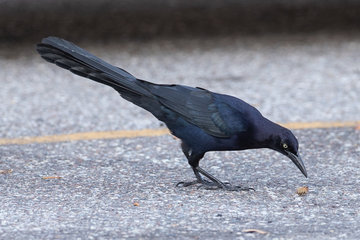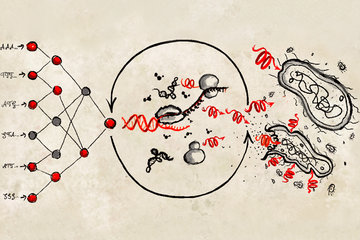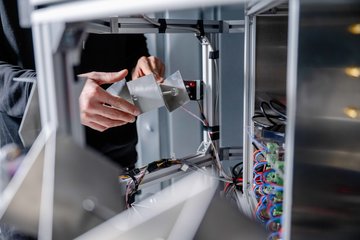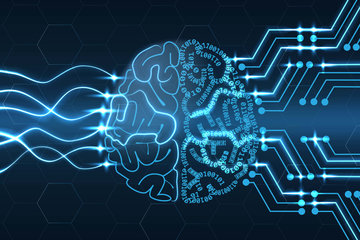Symbiosis between humans and artificial intelligence?
The evolution of humans and artificial intelligence could one day be intertwined
Artificial intelligence is already a big part of our daily lives. Whether it's the smartphone, autonomous driving or implants for certain bodily functions, artificial support is available for almost every area of life. Will humans and AI form more and more symbiotic units in the future? Professor Paul B. Rainey of the Max Planck Institute for Evolutionary Biology in Plön, Germany, has addressed this question.

Advances in artificial intelligence's ability to mimic human-like thinking will have far-reaching effects on future human evolution. Already, interactions with algorithms on phones influence world views, alter state of mind, play a role in health and disease prevention, support mate selection, determine travel conditions or drive purchasing decisions.
In a recent article, Professor Paul B. Rainey, Director of the Department of Microbial Population Biology, points to previously unrecognised but soon realisable ways in which humans and artificial intelligence could become symbiotic entities. In particular, he considers the possibility of both partners together becoming much more significant than either of them alone, to the point where evolutionary futures become irrevocably intertwined.
The only scary thing is the possibilities of malicious applications to which Professor Rainey also points. He therefore argues for societal engagement with this issue and a public awareness of the future implications that a symbiotic relationship between humans and artificial intelligence may have.












